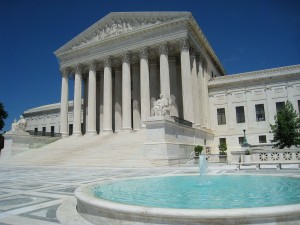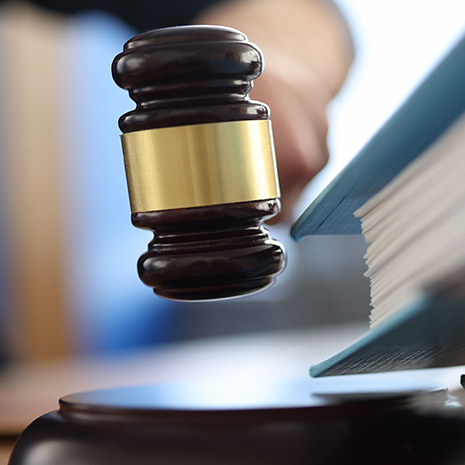Top Federal Crime Lawyer: Specialized Legal Protection for Federal Offenses
Top Federal Crime Lawyer: Specialized Legal Protection for Federal Offenses
Blog Article
Demystifying the Process of Federal Appeals: What You Need to Know
Browsing the complex realm of government appeals can usually appear like going across uncharted waters for those unknown with the procedure. Recognizing the nuances of appellate court territory, the ins and outs of submitting a notification of allure, providing a compelling short, and making an influential oral debate are vital parts that can significantly influence the end result of an instance. By untangling the layers of complexity bordering federal appeals, people can obtain a clearer understanding right into the mechanisms that regulate this critical point of the legal system.
Comprehending Federal Appeals Refine
Digging right into the complex realm of the government allures process reveals a systematic and structured journey via the judicial system - federal appeal lawyers mississippi. Federal allures serve as an important device for assessing choices made by reduced courts. Recognizing this process is essential for anybody involved in legal process at the government degree
The procedure commonly starts with a party dissatisfied with a lower court's ruling submitting a notification of allure. This sets off an evaluation by a higher court, where a panel of judges analyzes the lawful debates provided by both events. Briefs outlining the legal thinking behind each celebration's placement are sent, and dental arguments might be heard to clear up complicated problems.
The appellate court's decision is based on an extensive assessment of the lower court's proceedings and the debates presented. Once the appellate court reaches a decision, it can affirm, reverse, remand, or modify the lower court's judgment, giving clarity and finality to the legal conflict.
Appellate Court Territory Described

Appellate courts have jurisdiction over certain types of situations, normally those involving legal mistakes, step-by-step problems, or inquiries of law instead of accurate conflicts. The jurisdiction of appellate courts is generally described in statutes and laws that regulate the court system. Recognizing appellate court jurisdiction is important for parties associated with the allures procedure as it establishes whether a case is qualified for testimonial and the level to which the appellate court can interfere in the lower court's decision.
Filing a Notification of Charm
The first action in commencing the federal charms process includes submitting a Notification of Appeal with the appropriate appellate court. connecticut federal appeals attorneys. This crucial document formally notifies the court and the other parties associated with the instance that the appealing event plans to look for an evaluation of the lower court's decision. Filing a Notice of Appeal is a stringent step-by-step demand that sets the appellate procedure in motion
When preparing the Notice of Allure, it is necessary to make certain conformity with the certain guidelines and standards of the relevant appellate court. The paper has to generally include details such as the case name, the lower court's name, the date of the judgment being appealed, and a concise statement indicating the grounds for the appeal.
Timeliness is important when filing a Notification of Allure. Missing out on the target date for submitting this record can lead to the allure being dismissed, underscoring the significance of exact and punctual initiation of the allures procedure. It is suggested to seek lawful assistance to browse the intricacies of filing a Notice of Appeal successfully.
Briefing and Dental Argument
In the appellate procedure, presenting composed briefs and involving in oral debates play critical duties in advocating for the appealing event's position prior to the appellate court. Briefs are thorough legal files that outline the parties' arguments, legal authorities, and evaluation supporting their positions. These created entries give the court with a detailed understanding of the facts of the case, the relevant legislation, and why the appealing celebration believes the lower court's decision ought to be reversed.
Following the entry and evaluation of the briefs, oral debates use the events a possibility to further clarify their positions, deal with any questions the appellate judges may have, and highlight key factors from their created briefs. Dental disagreements are an opportunity for the lawyers to persuade the judges with spoken campaigning for and feedbacks to questions from the bench.

Receiving the Appellate Court Choice

Final Thought
Finally, the federal allures process is a facility however critical action in seeking justice. Comprehending the appellate court jurisdiction, submitting a notice of allure, preparing briefs, and presenting oral disagreements are all essential components of this process. Inevitably, receiving the appellate court decision can supply quality and resolution to lawful disputes. It is very important to navigate the federal allures process with diligence and focus to information to achieve a fair outcome.
As we progress from recognizing the federal allures process to studying the intricacies of appellate court jurisdiction, a fundamental aspect comes to light pertaining to the authority and restrictions of these higher courts in the lawful landscape. Appellate court territory refers to the extent of instances that a particular appellate court has the power to examine and decide upon. Unlike trial courts that hear instances for the initial time, appellate courts are restricted to reviewing choices made by reduced courts. Comprehending appellate court territory is vital for celebrations included in the appeals procedure as it determines whether a situation is qualified for testimonial and the extent to which the appellate court can intervene in the reduced court's choice.
Whether the appellate court verifies, reverses, or remands the reduced court's decision, recognizing the implications of the ruling is essential for all celebrations included in the appellate process.
Report this page